The educational materials listed on this page are about Corn.
Field corn is a commodity crop that is grown for many different purposes, especially livestock feed, fuel and further processing for human consumption. Sometimes called maize cultivation, cultivating corn is predominant in the Midwestern region. Field corn cannot be readily eaten and must undergo some form of processing first. Sweet corn, on the other hand, is grown for human consumption and can be eaten fresh. Conventional corn, organic corn and no-till corn are all important players in the corn market. Understanding your inputs, acreage and fertility can aid in using a corn yield calculator to determine corn crop. Corn production will vary depending on region, but not necessarily corn production by state. Corn growing is an important part of our agricultural food system. Key practices in corn production include organic agriculture, commodities, agronomic, corn, no-till, conservation tillage, cover crops, crop rotation, nutrient management, drought tolerance, crop improvement and selection.
A key resource to discovering the balance between soil and crop is SARE’s book Building Soils for Better Crops. This resource lays the foundation for understanding soil structure, soil fertility and overall soil management in order to improve corn production. SARE’s Crop Rotation on Organic Farms: A Planning Manual is a resource for farmers looking to integrate crop rotation into their operation to practice more sustainable methods, and to enhance organic matter and boost production. The Cover Crop Topic Room is a good starting point to learn more about the benefits that cover crops can have on overall soil management to improve corn yield.
Showing 1-10 of 23 results

Manage Weeds on Your Farm Video Series
In this series, experienced farmers from around the country talk about how they have found success controlling weeds by following ecological principles, and without resorting to the use of herbicides. To do so, they rely on a range of cultural and mechanical practices, including diverse crop rotations, well-timed cultivation and targeting weeds when they're at […]
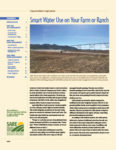
Smart Water Use on Your Farm or Ranch
As producers throughout the nation grow increasingly concerned about water scarcity, farmers, ranchers and agricultural educators are beginning to explore new, conservation-oriented approaches to water use.
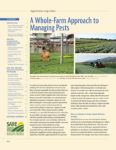
A Whole Farm Approach to Managing Pests
This 16-page bulletin helps producers—and the educators who work with them—use ecological principles across the entire farm to control pests.
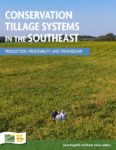
Conservation Tillage Systems in the Southeast
This production manual provides comprehensive guidance on conservation tillage systems for farms in the southeastern United States. It covers the core components of conservation tillage systems and includes both regional considerations and producer experiences.
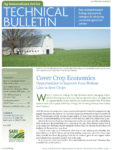
Cover Crop Economics
Cover crops can build soil health, control weeds, conserve moisture, provide grazing opportunities and more. But when do they start to pay for themselves? This analysis looks at the economics behind different management scenarios to determine if cover crops are likely to improve profitability in one, three or five years of use in corn and soybean rotations.

Improving Soil Health Through Cover Crops
Farmers around the country are discovering the power of cover crops to curb erosion and improve soil health. This video is from Pennsylvania, where a Penn State researcher and a grain farmer are partnering to spread the word.
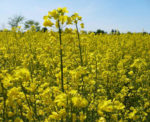
Sustainable Production and Use of On-Farm Energy
Using solar or wind energy or producing biofuels from crop feedstocks and anaerobic digestion helps farmers achieve energy independence while improving profitability and reducing fossil fuel emissions.

Cover Crops for Soil Health Workshop
All session recordings and slide presentations from this three-day professional development workshop are available online. Hosted by Northeast SARE and Delaware State University in March 2016, this event addressed the latest research on the benefits and successful management of cover crops in grain, vegetable and animal production systems.

Cover Crop Innovators Video Series
Find short video profiles of farmers around the country who are using cover crops on their land.
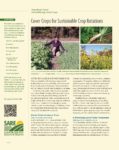
Cover Crops for Sustainable Crop Rotations
Cover crops are one of the best ways to improve soil health, reduce off-farm inputs and protect natural resources. Find a wealth of educational materials developed out of decades of SARE-funded cover crop research.